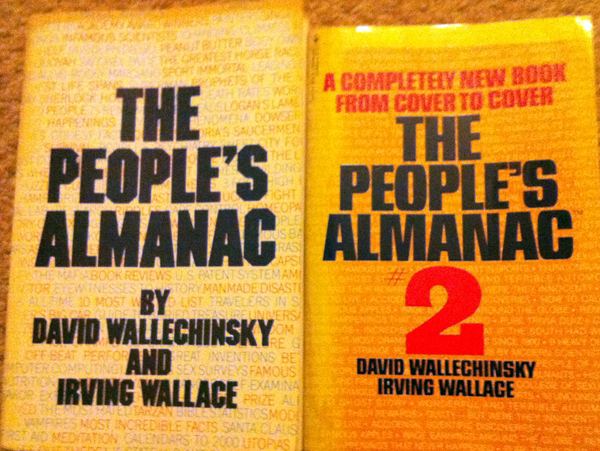On Friday we looked back at psychics’ predictions made in the 1975 book The People’s Almanac, forecasting the rest of the 20th century. With New York still above water, cancer uncured, and solar energy pills yet to replace food, the results were somewhat off the mark.
However, the authors of the book also asked scientists for their predictions. Did they do any better? Let’s find out.
James Bonner: [By 1980] Men will be able to direct the growth of human organs; in other words, we might be able to grow new arms, hearts or livers by genetic means. Maybe you will go to the doctor and he will say “Well, I think your heart isn’t so good now. Maybe we had better start growing you a new one. In another 2 or 3 years it will be grown up and we can plumb it in.
Someday it may be possible to replace, through synthesis of brain neurons, the 100,000 neurons in the brain that die every day. The new cells will have to be trained because they will have no memory.
DG Brennan: [By 2018] Computers as sophisticated as the human brain will be small enough to be carried in a shoe box.
It will be literally possible to put an intercontinental ballistic missile down a smokestack from a range of 6,000 miles.
Arthur C Clarke: Centralization of work in cities will become obsolete with improved electronic communication.
It will be possible to radio or cable a letter anywhere in the world in less than a day with privacy assured because of “robot handling at all stages of the operation.”
James F Danielli: It might be possible, with cell transplants, to create a creature that would be part horse, part man. I can’t see any reason for doing it, mind you.
Charles DeCarlo: (De Carlo predicted smaller, faster, self-repairing computers and listed seven likely effects on society, which I’ve paraphrased below)
- National and international secrecy will be diminished: Nations will share what they know.
- Wars will be more about strategy because it will be impossible to move large armies undetected.
- Banking and finance will have more influence on politics.
- Scientific and educational communities will share computer programs and research in areas such as food production, space exploration and fighting disease.
- The spread of science through computing will reduce ideological differences as people simply become interested in what works.
- Technology will widen the gap between developed and less developed nations.
- Computers will initially prompt governments to take more centralized control, but this will be offset by rising educational levels and mobility of populations.
Orville Freeman: Space satellites 200 or more miles above the surface of the earth will analyze weather, differences in soil, crops and forests, and spot crop damage.
[By 2000] Crops will grow faster and plants will be genetically redesigned so that all their leaves are exposed to sunlight and so that they can live on much less water.
Theodore J Gordon: [In 1984] More prefabricated foods will be available. More meat analogues and extenders made from soybeans and other vegetable protein sources will masquerade as hamburger and other meat products.
ES Hafez: [By 1990] A woman will be able to walk into a kind of “store” where frozen human embryos are sold in packets and select a baby with specific physical, mental and emotional attributes. Then, she will be able to have the embryo implanted into her uterus by her doctor and in 9 months will give birth to a baby. It will be possible for such embryos to be guaranteed free of genetic defects.
Desmond King-Hele: Three-dimensional color television, with smell, touch and taste added, may be available by the 1990s.
In new cities, transportation will be provided by small publicly-owned electric cars into which the driver can insert a coin for use for a certain number of miles. Roads will be devised so that the driver will not have to “drive” but will, instead, be on automatic pilot.
Vladimir Aleksandrovich Kotelenikov: [In the 21st century] Miniature television sets the size of cigarette packets will be used as everyday videophones. The images they transmit will be able to be transferred to a wall-size screen for greater detail.
John McHale: [By 1990] It will be possible to put information into a computer by talking into it. Three-dimensional television will be developed. The telephone network will be fully digitalized.
Gordon JF MacDonald: A satellite computer system would permit nearly instantaneous transmission of information. For example, the accessibility of financial data banks would change the workings of international trade drastically.
John Pierce: Cable television will bring newspapers directly to homes by wire.
Ithiel De Sola Pool: Information technology will make possible indices of everything, eg public happiness according to race, sex and age; reports of levels of public knowledge; statistics on traffic delays. Such computerized data systems will raise the issue of invasion of privacy.
Computers will be built that will be capable of formulating grammatical sentences in answer to verbal questions and of translating from one language into another.

